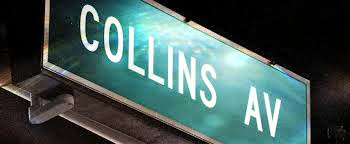Looking at
Richardson’s Web 2.0 based vision for education, what would you highlight as
the one or two most important aspects, trends, or affordances? What will have
the greatest impact on the future, in your opinion? Feel free to relate to any
other reading or discussion so far, if you wish. Also consider your technology
vision. Would you add/change anything regarding your technology vision, based
on Richardson’s chapter?
Richardsons’ web 2.0 based vision for education is right in
line with what I have experienced in the new era of education. The important aspects that Richardson
highlights are that learning is definitely changing and therefore trends in
education are changing (but Richardson points out not as fast as the
technology). Second, he points out that
learning the technology is not really the hard part, that learning with the
technology has a special nuances that we can’t overlook, including the fact
that learning takes place after we publish information on the web and that we
can’t view the web as merely a way of just moving written work to a new
format. The collaboration that takes
place is the important part and the read/write/web makes that possible. As Richardson says, “When we share online, we
create the potential for connections in ways that were simply not possible even
a few years ago. And in the context of
those connections we can form groups around our interests.”
It is an amazing time to be a teacher and a learner. The read/write/web allows us to share our own
experiences and learn from each other.
Pretty much anything we want to research and learn about is just a few
clicks away. I think the greatest impact
in the future will be blogs, wikis, etc. where collaboration can take place but
also vlogs, screencasts and other forms of audio/video casting online are
equally as important in the future. In
my own experience I have found it to be very rewarding to work with people in
an online setting. First, I am able to
complete things at my own pace often, versus everyone having to arrive for a
set meeting time. Second, I have access
to people from all over the world. This
is very different than just the 19 other kids in a classroom.
The question that Richardson poses that struck me the most
was when he said how do we rethink our ideas on literacy when we must prepare
out students to not only be readers and writers, but editors, collaborators,
and publishers as well. This is a great
question for me to contemplate in this course and hopefully begin to develop
some thoughts on. As an English teacher
I do care a lot about the subject, but I also think that part of being a
teacher is to help prepare students to be good citizens in the real world. Richardson quotes Prensky as saying, “This
online life is a whole lot bigger than just the internet. This online life has become an entire
strategy for how to live, survive and thrive in the twenty-first century where
cyberspace is a part of everyday life”.
Thinking about that in relation to what I feel are the obligations of a
teacher, I am even more certain that integrating technology in the classroom is
a responsibility of every teacher who believes in teaching content and also preparing
students for the real world. I
definitely want to include both aspects of this in my technology vision for the
future. I look forward to reading more
in his book and working with all of you to form my vision.

No comments:
Post a Comment